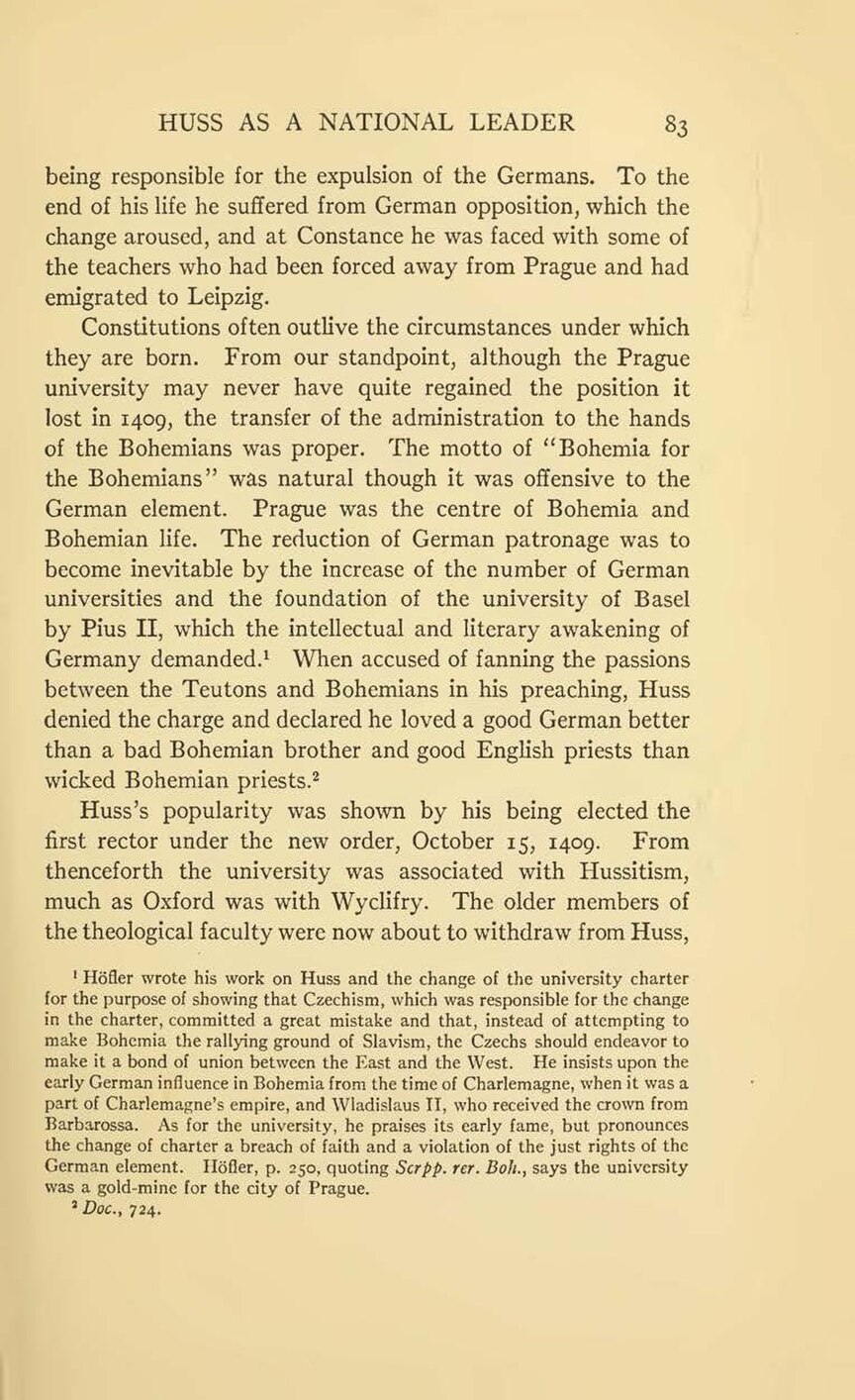being responsible for the expulsion of the Germans. To the end of his life he suffered from German opposition, which the change aroused, and at Constance he was faced with some of the teachers who had been forced away from Prague and had emigrated to Leipzig.
Constitutions often outlive the circumstances under which they are born. From our standpoint, although the Prague university may never have quite regained the position it lost in 1409, the transfer of the administration to the hands of the Bohemians was proper. The motto of “Bohemia for the Bohemians” was natural though it was offensive to the German element. Prague was the centre of Bohemia and Bohemian life. The reduction of German patronage was to become inevitable by the increase of the number of German universities and the foundation of the university of Basel by Pius II, which the intellectual and literary awakening of Germany demanded.[1] When accused of fanning the passions between the Teutons and Bohemians in his preaching, Huss denied the charge and declared he loved a good German better than a bad Bohemian brother and good English priests than wicked Bohemian priests.[2]
Huss’s popularity was shown by his being elected the first rector under the new order, October 15, 1409. From thenceforth the university was associated with Hussitism, much as Oxford was with Wyclifry. The older members of the theological faculty were now about to withdraw from Huss,
- ↑ Höfler wrote his work on Huss and the change of the university charter for the purpose of showing that Czechism, which was responsible for the change in the charter, committed a great mistake and that, instead of attempting to make Bohemia the rallying ground of Slavism, the Czechs should endeavor to make it a bond of union between the East and the West. He insists upon the early German influence in Bohemia from the time of Charlemagne, when it was a part of Charlemagne’s empire, and Wladislaus II, who received the crown from Barbarossa. As for the university, he praises its early fame, but pronounces the change of charter a breach of faith and a violation of the just rights of the German element. Höfler, p. 250, quoting Scrpp. rer. Boh., says the university was a gold-mine for the city of Prague.
- ↑ 3 Doc., 724.
